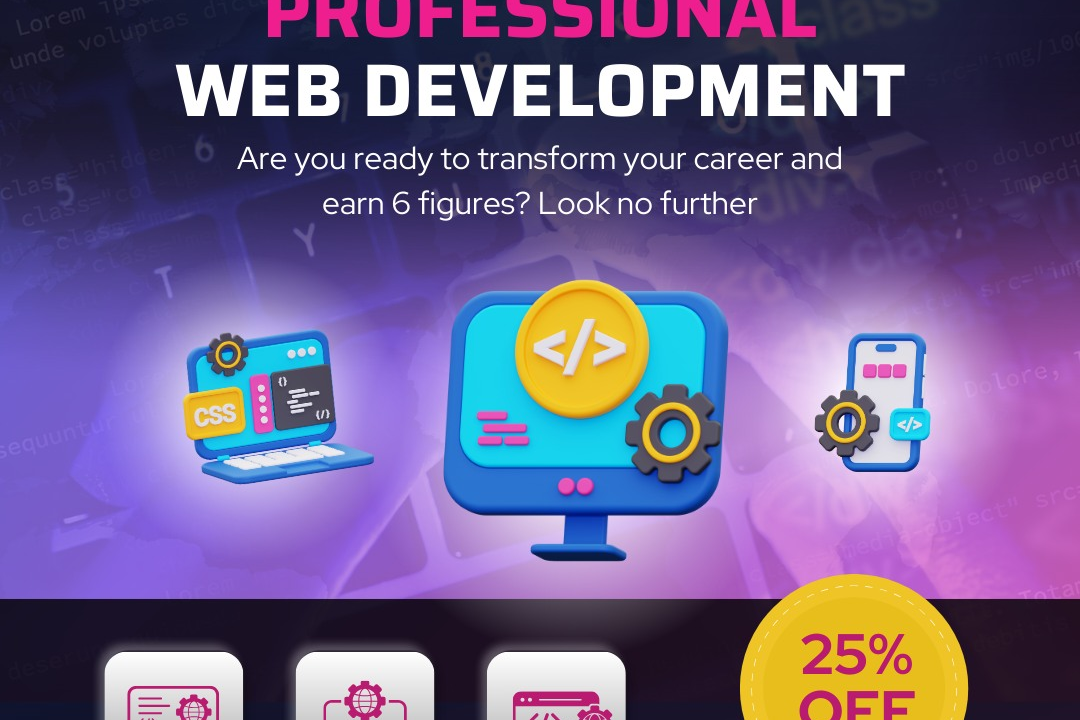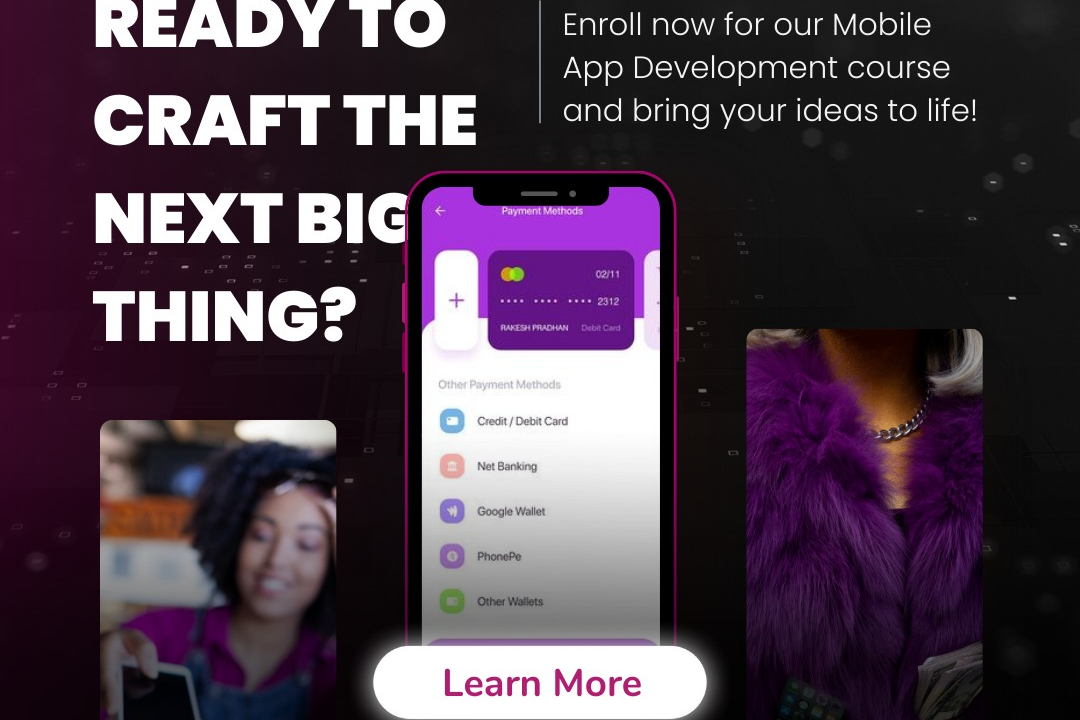Factor Program in PHP
A PHP factorial program is a script designed to calculate the factorial of a given number, which is
Factor Program in PHP
A PHP factorial program is a useful tool for demonstrating fundamental programming concepts such as loops and recursion while performing essential mathematical computations. It helps learners understand how to implement algorithms that involve repetitive multiplication, which is fundamental in various scientific and statistical applications. Additionally, creating a factorial program in PHP enhances coding skills, problem-solving abilities, and understanding of control structures, making it an important exercise for those looking to strengthen their programming foundation or develop backend applications that involve mathematical calculations.
To Download Our Brochure: https://www.justacademy.co/download-brochure-for-free
Message us for more information: +91 9987184296
A PHP factorial program is a useful tool for demonstrating fundamental programming concepts such as loops and recursion while performing essential mathematical computations. It helps learners understand how to implement algorithms that involve repetitive multiplication, which is fundamental in various scientific and statistical applications. Additionally, creating a factorial program in PHP enhances coding skills, problem solving abilities, and understanding of control structures, making it an important exercise for those looking to strengthen their programming foundation or develop backend applications that involve mathematical calculations.
Course Overview
The “Factorial Program in PHP” course teaches students how to implement factorial calculations using PHP, covering both iterative and recursive methods. Through step-by-step guidance and real-time projects, learners will develop a strong understanding of control structures, functions, and basic algorithm design, enabling efficient problem-solving and foundational PHP skills for applications involving mathematical computations.
Course Description
The “Factorial Program in PHP” course teaches you to compute factorials using PHP through iterative and recursive techniques, providing practical skills for mathematical and algorithmic programming.
Key Features
1 - Comprehensive Tool Coverage: Provides hands-on training with a range of industry-standard testing tools, including Selenium, JIRA, LoadRunner, and TestRail.
2) Practical Exercises: Features real-world exercises and case studies to apply tools in various testing scenarios.
3) Interactive Learning: Includes interactive sessions with industry experts for personalized feedback and guidance.
4) Detailed Tutorials: Offers extensive tutorials and documentation on tool functionalities and best practices.
5) Advanced Techniques: Covers both fundamental and advanced techniques for using testing tools effectively.
6) Data Visualization: Integrates tools for visualizing test metrics and results, enhancing data interpretation and decision-making.
7) Tool Integration: Teaches how to integrate testing tools into the software development lifecycle for streamlined workflows.
8) Project-Based Learning: Focuses on project-based learning to build practical skills and create a portfolio of completed tasks.
9) Career Support: Provides resources and support for applying learned skills to real-world job scenarios, including resume building and interview preparation.
10) Up-to-Date Content: Ensures that course materials reflect the latest industry standards and tool updates.
Benefits of taking our course
Functional Tools
1 - PHP Development Environment: Students are introduced to various PHP development environments such as XAMPP, WAMP, or MAMP, which provide a local server setup for running PHP scripts seamlessly. These tools allow students to develop, test, and run PHP code like factorial programs efficiently on their personal computers without needing a live server. Setting up a reliable environment is fundamental for hands on training, and learners get familiar with configuration, directory management, and server controls, ensuring smooth project deployment and debugging.
2) Text Editors and IDEs: Tools like Visual Studio Code, Sublime Text, PHPStorm, or NetBeans are emphasized for writing PHP code comfortably. These editors come with features such as syntax highlighting, code auto completion, debugging support, and extensions tailored for PHP development, which significantly enhance coding accuracy and productivity. Training helps students understand how to utilize various functionalities, manage large codebases, and follow best coding practices that streamline their development process.
3) Debugging Tools: In the course, students learn to use debugging tools integrated within IDEs or standalone applications such as Xdebug for PHP. These tools help identify errors, monitor variable states, and analyze script execution flow, which is crucial when implementing recursive or iterative factorial algorithms. Debugging skills enable learners to troubleshoot their code effectively, optimize performance, and understand logical flaws, fostering a deeper comprehension of program behavior.
4) Version Control Systems: Introduction to tools like Git and platforms such as GitHub or GitLab enables students to manage their project versions systematically. Version control facilitates tracking changes, collaborating with peers, and safely experimenting with different implementation approaches for factorial calculations. Practical training in these tools builds habits of maintaining clean, organized, and recoverable codebases, essential for professional software development.
5) Browser Developer Tools: Students learn to utilize browser based tools to test, debug, and visualize their PHP applications when integrated with HTML, CSS, and JavaScript. Although PHP runs on the server side, understanding how the front end interacts with server responses helps in creating dynamic web pages that display factorial results effectively. This knowledge enhances overall full stack development capabilities, allowing students to create comprehensive, user friendly applications.
6) Database Tools (if applicable): For projects involving storing or retrieving factorial related data, students might use database management tools such as phpMyAdmin or MySQL Workbench. These tools enable creating, querying, and managing databases, which are essential for understanding how PHP interacts with data storage solutions. Learning database integration prepares students for developing more complex applications where stored data and user management are involved.
7) Testing Frameworks: The course may introduce PHP testing frameworks like PHPUnit for automating the validation of factorial functions. Writing test cases ensures the correctness of code, handles edge cases, and verifies results systematically. Employing testing tools builds disciplined coding practices, reduces bugs, and supports the creation of reliable, maintainable software products.
8) Educational Platforms and Online Resources: Access to platforms such as Stack Overflow, W3Schools, PHP documentation, and tutorial websites supplement hands on learning. These resources help students resolve doubts, explore advanced topics, and stay updated with the latest PHP features and best practices. They foster independent learning and continuous growth beyond structured training sessions.
9) Command Line Interfaces (CLI): Training includes using terminal or command prompt tools to run PHP scripts directly. Familiarity with command line operations provides flexibility in executing scripts, managing files, and automating tasks, which is beneficial for debugging and deployment in real world scenarios. This skill expands students’ technical proficiency and prepares them for diverse development environments.
10) Project Management and Collaboration Tools: Platforms like Trello, Slack, or Microsoft Teams may be used for organizing coursework, tracking project progress, and facilitating peer interactions. These tools help students develop project planning, communication, and teamwork skills—crucial attributes for working in professional software teams, especially when collaborating on larger factorial or algorithm projects.
11 - Code Versioning and Branch Management: Students are introduced to best practices for managing multiple versions of their factorial projects through branching and merging strategies in Git. This enables them to experiment with different implementation approaches, compare results, and collaborate effectively without risking core code integrity. Mastering version control workflows prepares learners for professional development environments where code stability and team coordination are essential.
12) Code Review and Collaboration Platforms: Using code review tools integrated with repositories, students learn to submit their factorial code for feedback, ensure adherence to coding standards, and incorporate peer suggestions. This collaborative process enhances code quality, promotes best practices, and builds skills in constructive critique—key attributes in professional age programming teams.
13) Continuous Integration (CI) Tools: Introducing platforms such as Jenkins, Travis CI, or GitHub Actions, students gain insights into automating the testing and deployment of their PHP projects. Automated workflows help identify bugs early, ensure consistency across environments, and facilitate rapid development cycles—beneficial for managing complex projects involving multiple modules or features.
14) API Testing Tools: For projects involving APIs that perform factorial calculations or integrate external services, students learn to use tools like Postman or Insomnia. These tools assist in sending requests, analyzing responses, and debugging API interactions, providing practical experience in building scalable and interoperable web applications.
15) Deployment Platforms: Learners are guided through deploying their PHP applications on cloud based servers or hosting services like Heroku, AWS, or DigitalOcean. Understanding deployment processes ensures that students can make their factorial programs accessible online, test under real world conditions, and learn about domain management, SSL, and server security.
16) Performance Monitoring Tools: The course may introduce monitoring solutions such as New Relic or server logging tools to assess the efficiency and responsiveness of PHP applications. Analyzing performance metrics helps optimize code, improve load times, and ensure scalability—capabilities crucial for production grade applications.
17) Content Management Systems (CMS) Familiarity: Exposure to PHP based CMS platforms like WordPress or Joomla allows students to understand how PHP is used in content management and website customization. This broadens their skill set beyond standalone scripts and provides context for integrating factorial logic into broader web solutions.
18) Security Testing Tools: For safeguarding applications, students explore tools and techniques to identify vulnerabilities such as XSS or SQL injection, especially if their factorial projects involve user input. Learning about security best practices ensures that their code remains robust, reliable, and compliant with industry standards.
19) Educational Coding Challenges and Platforms: Participation in coding platforms like HackerRank, LeetCode, or Codewars can help students practice implementing factorial algorithms efficiently and under constraints. These challenges refine problem solving skills, algorithm optimization, and coding accuracy in a competitive yet supportive environment.
20) Documentation and Code Commenting Tools: Emphasizing the importance of well documented code, students learn to use documentation generators like PHPDocumentor or integrate inline comments effectively. Proper documentation enhances code readability, maintainability, and clarity for future modifications or collaborative work.
21 - Learning Management and E Learning Platforms: Access to online courses, webinars, and certification portals such as Moodle or Udemy provides additional resources for deepening their understanding of PHP development, recursion, and algorithm optimization related to factorial calculations. These platforms facilitate structured learning journeys and continuous skill enhancement.
22) Cloud IDEs and Online Sandboxes: Tools such as CodeSandbox, Replit, or GitHub Codespaces offer students a quick, browser based environment to write, test, and share PHP code without local setup. This accessibility accelerates experimentation and collaboration, especially for remote or hybrid learning models.
23) Analytics and User Interaction Tracking: For advanced projects, students might learn to integrate analytics tools that monitor how users interact with their applications. This data driven approach guides performance improvements and user experience enhancements for PHP based web applications.
24) Backup and Recovery Solutions: Training on data backup tools and procedures ensures students understand how to safeguard their project files and database information, minimizing data loss risks. This knowledge is critical for maintaining project continuity, especially in iterative development processes.
25) Integrating Front End Technologies: Basic skills in HTML, CSS, and JavaScript are emphasized to build complete web applications that display factorial results dynamically. Understanding how PHP interacts with front end technologies enables students to create polished, user friendly interfaces for their projects.
Each of these tools and skills adds depth to students' understanding of PHP development, project management, collaboration, and deployment, laying a strong foundation for industry ready software professionals.
Browse our course links : https://www.justacademy.co/all-courses
To Join our FREE DEMO Session: Click Here
This information is sourced from JustAcademy
Contact Info:
Roshan Chaturvedi
Message us on Whatsapp:
Email id: info@justacademy.co
Aspire Systems Php Interview Questions For Experienced
Elib.Cmpdi.Co.In Minewisesale Foprms Save_daily_program.Php
Delloite Online Test For Manual Testing Questions











